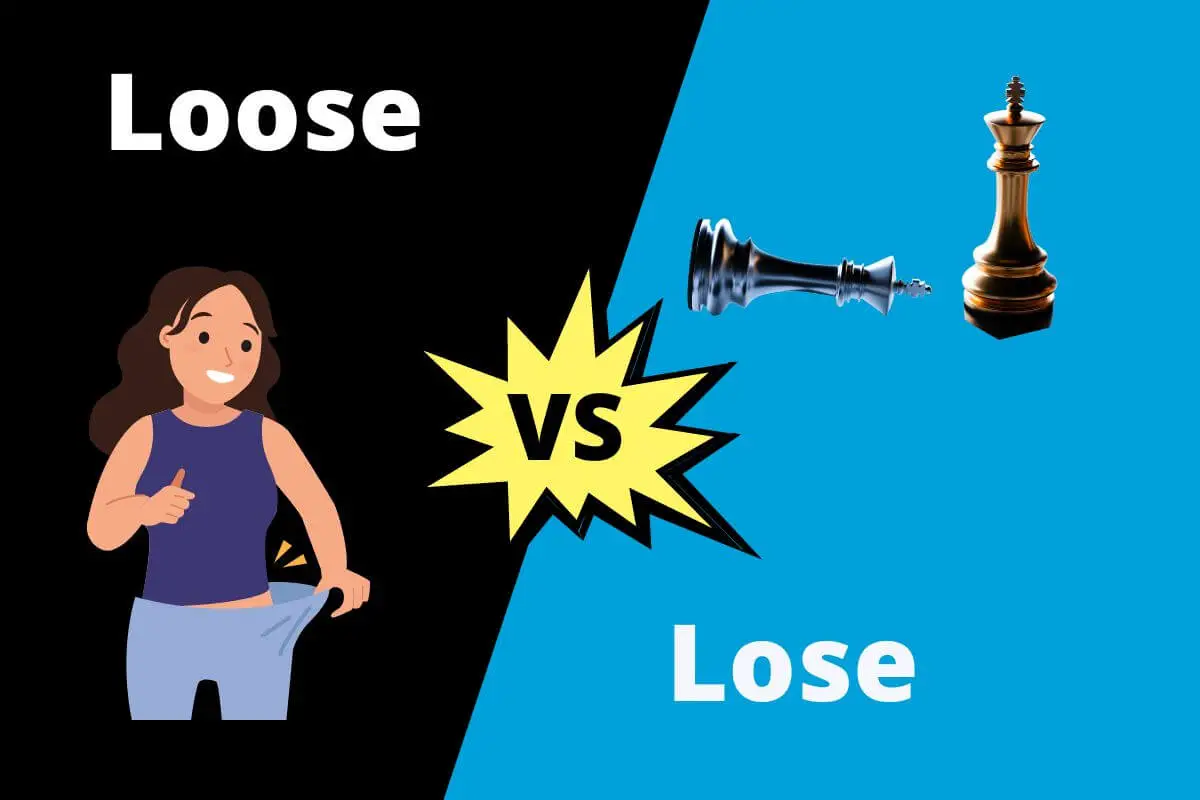The main difference between loose and lose is that loose means not tight, and lose means to fail to win or misplace.
Many make the mistake of using these terms interchangeably without knowing their meanings and relying just on the pronunciation.
Table of Contents
Loose vs Lose
| Loose | vs | Lose |
| Loose means something which is not tight or baggy. | Meaning | Lose implies something that is misplaced or you cannot get it. |
| Adjective | Primary Parts Of Speech | Verb |
| lu:s | Pronunciation | lu:z |
What Does Loose Mean?
The word loose means something free or not tightly held. There are various meanings of loose in English, depending on how it is used in a sentence.
For the most part, loose is an adjective or adverb. However, it is also used as a verb that means to release.
How to Use Loose
- Adjective: Loose means something that is not fixed at a place or lacks precision.
- Example: The belt is too loose for these pants.
- Adverb: Describes how a verb, adjective, or other adverb is loose.
- Hold on loosely to the rope. (Loosely modifies the phrase hold on.)
- Verb: Loose can also be used as a verb, which means released or set free. For example, the miscreants loosed off a shot at the stationary car.
When someone can’t follow moral ethics, they’re considered a loose character. Here, loose is used as an adjective.
Some synonyms for loose are sloppy, free, easy, unhooked, slack, baggy, hanging, disconnected, detached, etc.
More Examples of Loose
- Fortunately, I have a loose change for the parking meter.
- The child had a loose tooth.
- The new pants I bought are too loose.
- She let loose after her last exam.
- Loose shampoo packs are no longer available at the store.
- I fell to the ground due to my loose grip.
- Rohan ordered the suit online, but it is very loose.

What Does Lose Mean?
The term lose has two meanings. It’s a verb that refers to when something is misplaced, or when someone gets defeated or fails at something.
How to Use Lose
Lose is a verb and is used in two ways.
- When someone gets defeated in a sport or fails to win a competition, or there is something you cannot find, then lose is used as an action verb.
- Example: Did you lose your hockey match?
- Example: I don’t want to lose my car keys.
- Lose is also used to describe something you are trying to free yourself from.
- Example: He has been trying to lose weight for a long time.
More Examples of Lose
- She lost her phone at the wedding event.
- Kate loses her trust in Mary.
- Peter lost his temper after hearing that he had failed his final exams.
- Alice always loses his spectacles and then finds them all around the house.
- Losing hair is more painful than anything else.
Some synonyms for lose are fail, waste, give up, suffer, drop, forget, miss, and rob.

Difference Between Loose and Lose
Loose is an adjective used to refer to instability, insecurity, or bagginess. Lose is a verb you can use to refer to an act of loss, destruction, or failure.
You can remember the difference between the two with their spelling. While loose has two Os, lose has just one.

